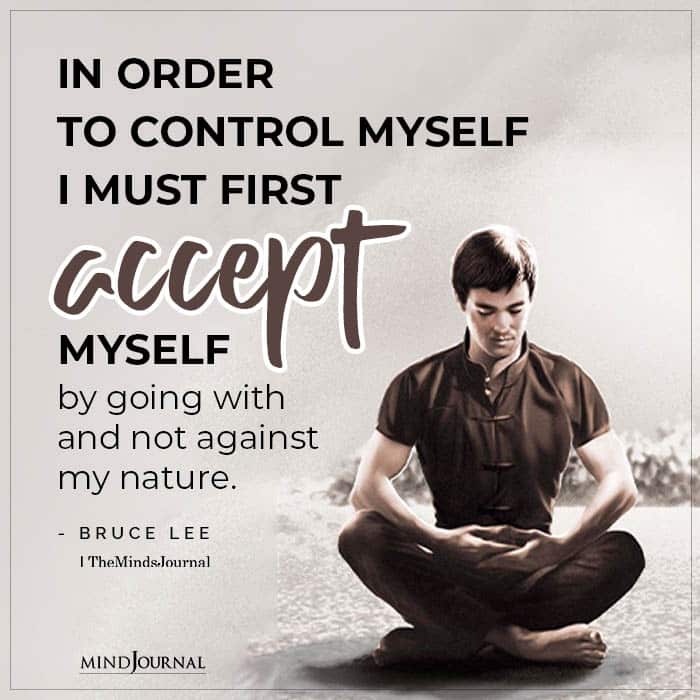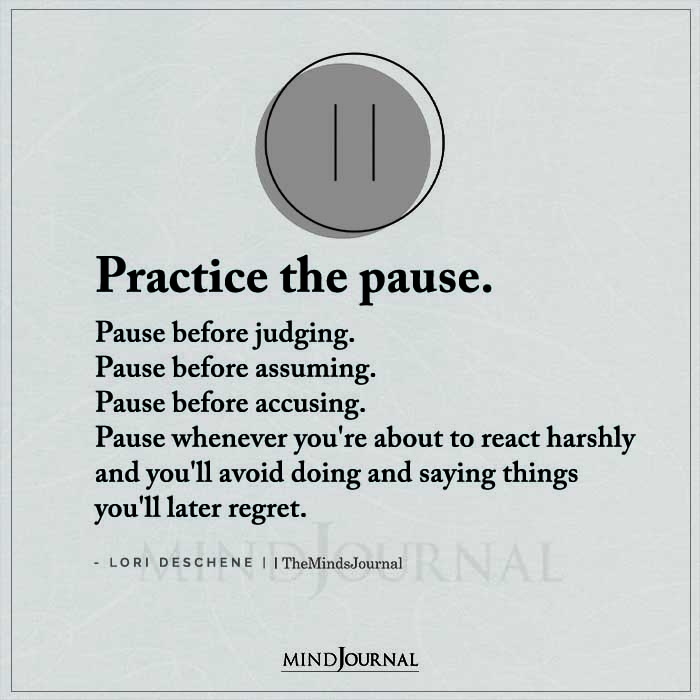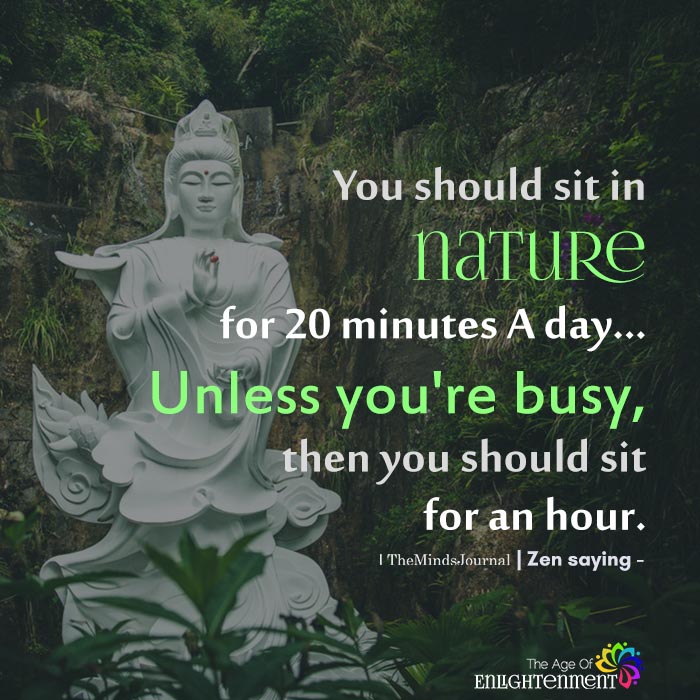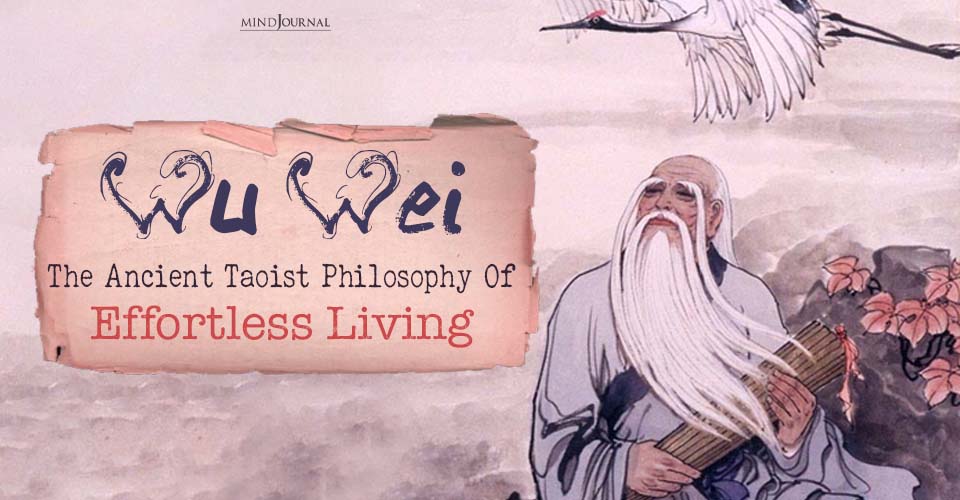Ever feel like you’re trying too hard in life? Discover the concept of Wu Wei in Taoist philosophy, and learn how to go with the flow instead of fighting against it.
As our society really embraces the hustle culture, I have always believed being obsessed (not passionate) was the key to success and happiness. But eventually I realized this obsessive ‘hustle’ was coming at the cost of my mental and emotional health. That’s when I turned to the ancient Taoist principle of Wu Wei.
What is Wu Wei – The Taoist Principle Of Non Action?
An ancient Chinese concept, Wu Wei literally translates to “effortless action”, “not doing” or “inexertion”. We can reach this state when our actions achieve the desired objectives in accordance with our values and the simple nature of events.
It is a state of mind that promotes mindfulness, stillness, composure, inner harmony and letting go of things that don’t serve any purpose.
Researchers from a recent 2021 study, explain this Taoist philosophy of ‘actionless action’ and non-striving as a “dynamic, unselfconscious state of mind of a person who is optimally active and effective.”
It is a state where we act without forcing or trying to control the outcome, and in synchronization with nature’s law and course. Here the focus is on how we perceive action. According to the researchers, Wu Wei helps us accomplish goals even without deliberate action.
This Chinese philosophy on human performance and experience helps us become aware of the reality of the present situation and act accordingly without taking too much stress or striving too hard to reach the intended destination by affecting our mental health.
This “non-action” form of action, however, does not mean a lack of action or being lazy. It simply means action without any willed effort where purposeful effort is avoided without preventing the occurrence of results.
Related reading: Mushin: How The ‘No Mind’ State Can Help You

Synchronizing with nature
This Chinese principle of “effortless effort” and “action of non-action”, develops a state of being where our actions are effortlessly synchronized with the ups and downs of nature’s elements. It empowers us to appropriately respond to situations when they arise, without any deliberate effort. Primarily, Wu Wei meaning can be summarized by the following traits –
- Ease and effortlessness in actions
- Awareness of the present moment
- Detachment from attachment
- Letting go of individual ego
- Patience
This ancient Chinese concept can change our lives by transforming our mindset on the what, how and why we do things. It is about tapping into stillness, detaching from the need to strive harder and accomplishing more by fully involving in the performance of a task.
This non-striving mindset is about directing your valuable energy into things that are aligned with our dreams, morals and values and about decluttering our lives.
The state of non-striving is not achieved by being passive or lazy, and it still involves working hard for your dreams. But with Wu Wei, we let go of our need to manipulate or control the outcome. We simply allow things to unfold naturally and accept what is.
When we decide and act from a space of acceptance and effortless action, we can achieve our objectives without experiencing mental distress or physical exhaustion.
Related reading: Ichigo Ichie: 10 Principles Of The Japanese Art of Living Every Moment
Why Is Wu Wei Principle Important?
How well do you sleep at night? Do you fall asleep immediately or do you worry about all the things you need to deal with the next day? How refreshed do you wake up in the morning?
Do you feel fresh and energetic or do you feel exhausted and groggy? And what does your typical day look like? Do you run from finishing one important task to another or do you pause and admire that little yellow bird sitting quietly on the tree nearby?
Life as we know it is full of struggles and challenges that lead to incessant stress, worry, anxiety and even depression. Although we can’t avoid the challenges life throws at us, we can avoid the stress and anxiety that comes with it through Wu Wei.
Being an athlete and a working professional, I have always believed pushing my limits is the secret to success. Everytime I hit a wall, my initial instinct is to push through it no matter how much it hurts.
I make sure to give 120% in everything that matters to me and I do not, rather I can not, rest until I have achieved what I have set out to achieve.
This mentality was planted into me when I started playing competitive sports as a teenager. And this mindset has served me well throughout my life, giving me the willpower and determination to fight and emerge victorious from life’s battles.
Related reading: Ikigai: The Japanese Secret To Happiness
But what I did not expect was the burnout, fatigue, stress and anxiety that followed. When you are constantly hustling, grinding and pushing yourself you are bound to reach a point of exhaustion. This is where frustration creeps in and you become annoyed with life.
Not only does it affect your ability to love and care for yourself, but it also affects your relationships, career and your mental health. And this is exactly why I turned to the ancient Daoist concept of Wu Wei.
Stillness: The key to inner peace
Being a perfectionist and workaholic, my self-esteem is closely tied to my accomplishments, which is why I never stop pushing my limits to reach my goals. Growing up with this mindset (or psychological issue), I have never learnt how to “do nothing” or be still.
I know how to procrastinate and be lazy, but I don’t know how to just be without putting in deliberate effort. And I believe that most of us struggle with this – the action of non-striving or non-action.
We are programmed to work harder than we naturally can as such behavior is often rewarded with financial gains and social recognition. But at what cost?
Our mind is constantly racing, trying to cope with deadlines, responsibilities, daily errands, family, spouse, kids, social media, health and what not. We never feel we have the time to relax or the energy to do so. And this directly affects our ability to feel satisfied, be grateful, feel fulfilled and happy.
Yes, we all need to pay the bills, but this is not the ONLY way out. We don’t need to run constantly. We don’t need to keep striving even when it is literally killing us.
We don’t need to be on our “flight or fight mode” all the time. Instead, we can pause, breathe, be aware and be still. Wu Wei allows us to be happy and successful by letting external forces guide us forward instead of resisting them.
Related reading: The Four Rules Of Living According To Lao Tzu
The Taoist concept of Wu Wei, initially described in Chinese philosopher Lao Tzu’s Tao Te Ching, shows us that harmony can be achieved through inaction. Instead of chasing performance, productivity and perfection, we need to pursue our personal needs and fulfill them.
We need to focus on our human experience, our thoughts, our emotions, our body and pay attention to what they are telling us. We need to realize that we are human ‘beings’ and we thrive on love, happiness, emotional connection and, most of all, rest. Peace of mind is more important than performance.
And this inner peace can only be attained through our awareness and the practice of being still.

Is Wu Wei the path to better performance?
According to the 2021 study, “there is a clear de-emphasis of self-effort” in Wu Wei. When we revel in stillness, we don’t get bothered or worried about the outcome while we are performing, this is the key to realizing effortlessness.
“Rather than striving actively to overcome the confronting obstacle or opponent, one’s attitude of striving is curbed so that actions can be performed effortlessly instead,” explain the researchers.
We should not be consumed by worries or thoughts of failure, loss, fear or even celebrations and rewards upon achieving the desired outcomes, while performing an action. As we become free from the outcome, we are better able to focus on the actual performance without feeling any undue pressure.
In that, Wu Wei is similar to being in a flow state of mind. According to positive psychology, the flow state or ‘being in the zone’, refers to a mental state where someone is fully immersed in the activity they are performing at the moment.
It is associated with full task absorption, complete involvement, heightened focus, strong drive, enjoyment of the process of performing the act and low levels of self‐referential thinking.
The philosophical concept of Wu Wei is similar as the emphasis here is on effortlessness and our ability to be sensitive to our present environment. It describes that one should be engaged in the performance just for the sake of performing.
Related reading: 6 Ways to Practice Non-Attachment and Find Inner Peace
By allowing things to happen naturally and letting our actions lead to spontaneous manifestations, we are better able to reach our desired goals by interacting with nature harmoniously and with spontaneity.
By not looking at the goal and by staying involved in the process, we go with the flow to reach a destination that may be better than the intended one.
How to practice Wu Wei?
So how is Wu Wei practiced? Pause for a moment. Take a deep breath. Relax your shoulders. And be aware of the present moment. There, that’s your first step to practice the art of doing nothing. The easiest way to practice Wu Wei is to wait before you act.
Here are a few ways to employ this Daoist concept of acting without desire in your life –
1. Learn to pause
How often do you pause to enjoy the moment in your daily life? Instead of turning to your smartphone every time you need a break, simply focus on the things that are unfolding at that very moment. Alternatively, go for a walk and play close attention to everything you see and hear.
It is normal for you to get distracted by racing thoughts about the past or future, but every time your attention wanders, refocus it to absorb the sights and sounds of the present moment. This will help you develop awareness and mindfulness, and experience stillness in your daily life.
Related reading: Equanimity: The Buddhist Philosophy For Cultivating Wisdom and Compassion

2. Accept spontaneous occurrences
Nature is inherently spontaneous, and so is life. Spontaneity is also one of the core principles of Wu Wei as it is believed that nature’s flow is never preplanned, but always spontaneous.
We can plan as much as we want, we can put in as much effort as we wish, but life always unfolds the way it wants. Have you ever seen plants break through concrete out of nowhere? That’s the spontaneity of life.
Although we should be taking steps to accomplish our goals, we must also be open to change that may crop up randomly and spontaneously, whether within us or in the outside environment.
This is what Wu Wei teaches us. We can never plan, expect or understand what opportunities life may present us and lead us to a destination that is far better than what we initially expected.
3. Experience stillness
Have you ever felt the stillness that resides in every moment? Once you learn to pause and take a step back from your normal busy life, you will be better able to tap into the stillness that exists within you. Being still is one of the most powerful abilities we have.
It is not about being inactive or passive. Stillness is about being present in the moment. Inner stillness enables us to appreciate the beauty of nature and all living beings. Stillness makes us empathic, compassionate and kind. It keeps us honest and true.
Related reading: Kaizen: A Japanese Technique for Overcoming Laziness
This is why you need to pause before you take any decision or action as you need to be clear that it is born out of stillness, not out of your need to strive.
Wu Wei tells us that if we pay heed to our inner voice, we will find our way to stillness and inner peace. And this peace can come when you detach yourself from your expectations of the outcome.
4. Be in a flow state
Instead of striving hard to succeed or clinging to your idea of success, learn to get into a flow state where you become a part of the action, not as the ‘actor’ but as an inherent part of the process.
Being in the zone is effortless action. Being an athlete, I have personally experienced what being in a flow state feels like, where you don’t think about what you are doing, you just become one with the action.
When you are in a flow state, you don’t feel tired or exhausted, you don’t worry about the end, or how much time it has taken; you simply enjoy the process of doing it.
And this mental state of flow can be experienced by anyone, whether you are a professional, an artist, a chef, a teacher, an athlete or someone trying to practice Wu Wei.
This state connects you with your inner genuine self, promotes focus, energy, alertness, excitement & relaxation and makes you feel alive. Once you learn to be still, let go of expectations and don’t force yourself, you can enter the flow.
Related reading: How to Live in the Flow of Life
5. Let go of expectations
Yes, we all have plans and we all want to achieve specific goals in life. We think life will go a certain way, but eventually life ends up being completely different. Unpredicted challenges and unexpected possibilities crop up out of nowhere and lead us down a completely different path than the one we expected to be on.
Regardless of how much effort we put in, we can never guarantee the outcome. This is why we need to let go of the beliefs and ideas we hold so dearly and practice detachment from our plans, goals and attachments. We need to open our minds and hearts to what is and allow the flow and cycle of nature to guide us forward.
When you detach from your expectations, you gain the ability to see the bigger picture and how your effortless actions are in alignment with the spontaneity of nature.
6. Be connected to nature

The best way to synchronize your effortless action with the elemental cycle of nature is to spend more time in nature. When we connect with nature, not only do we learn more about ourselves, we become more aware and feel connected with every living being and feel united with the universe.
Being in nature is one of the most basic ways of inviting Wu Wei into your life as nature is effortless and spontaneous.
Related reading: Shinrin-Yoku: How The Japanese Art Of Forest Bathing Can Help You
The way of Wu Wei Philosophy
Wu Wei is not about doing nothing or living an ambitionless life. It is not about being lazy or leaving everything to fate. It is simply about enjoying the process and detaching yourself from your expectations of the outcome. It is not focused on inaction, but on the right action that is in sync with your values and the elemental cycle of nature.
Wu Wei teaches us to work with external forces and avoid over-action. It teaches us the value of conserving energy so that we can use it when the moment is right.
Related reading: How a “Do Nothing” Day Changed My Life
Frequently Asked Questions (FAQs):
Is wu wei Buddhism?
Wu Wei is the Taoist principle of non action. Taoism, also known as Daoism, is a philosophy and religion that originated in ancient China. Buddhism is separate from Taoism. However, many Buddhist deities have been adopted into the Taoist pantheon.
How can the principle of wu wei be understood?
According to the concept of Wu Wei, inaction refers to following and synchronizing your actions with the flow of nature. It means one should not force any action, rather flow with the situation. This is considered the noblest action according to Daoism.
Why is wu wei considered to be an expression of virtue?
Wu Wei is considered as a skill where one becomes a fully realized individual. It helps to add value to our human experience and is hence considered as a virtue.












Leave a Reply